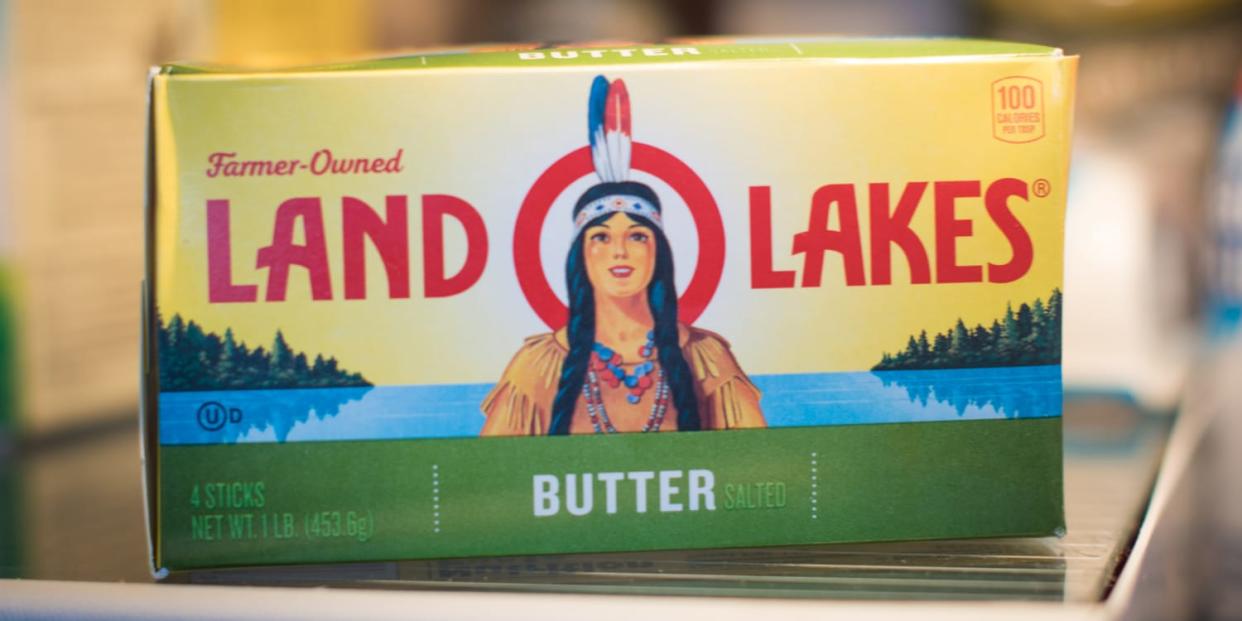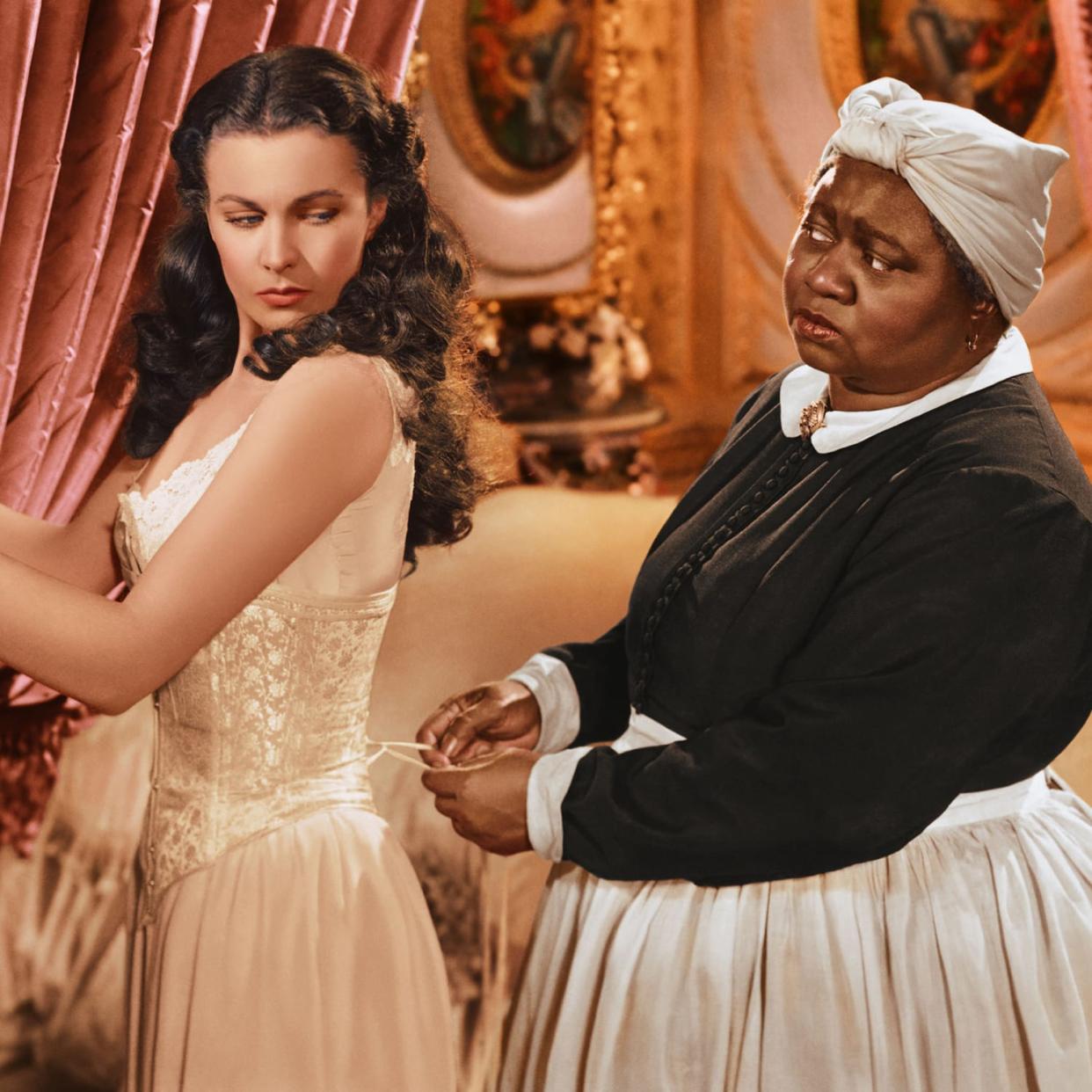Here's how American brands are changing after facing racial reckoning
There is a growing list of companies that are rethinking their outdated marketing in the wake of the Black Lives Matter protests recently triggered by the death of George Floyd. From pancake mix and syrup to movies and ice cream, many brands have had to reckon with racially insensitive logos, themes and marketing.
Dr. Laura Morgan Roberts, a professor at the University of Virginia Darden School of Business and co-editor of the book "Race, Work, and Leadership: New Perspectives on the Black Experience," explained that she thinks of race as a channel on the radio, always playing 24/7, to which "many people tune in but most people do not."
"Things have happened because the world was really quiet and the George Floyd incident somehow captured the hearts and minds of people such that they started to tune into race," Roberts told TODAY. "Now it's out in the open. I think that's where we are. We also have leaders of large and small companies making a set of public commitments to fight against racial injustice. And we know those statements have taken many forms but there's just been a groundswell of people confronting race head-on and making a commitment or promise to improve the situation."
Below is a list and brief history of the brands so far that are adjusting their racially insensitive packaging.
Aunt Jemima
Perhaps one of the most recognizable breakfast brands in America, Aunt Jemima announced on June 17 plans to remove its logo and rename its brand amid the public outcry that it perpetuates a racist stereotype.
"We recognize Aunt Jemima's origins are based on a racial stereotype," Kristin Kroepfl, vice president and chief marketing officer of Quaker Foods North America, said in a statement to TODAY. "While work has been done over the years to update the brand in a manner intended to be appropriate and respectful, we realize those changes are not enough."

Aunt Jemima was often mentioned in songs performed at minstrel shows during the reconstruction era, Cyndi Tiedt of the Jim Crow Museum of Racist Memorabilia explained, adding that the first real-life Aunt Jemima was portrayed by a woman who had been born into slavery.
"Changing a person's appearance and moving away from what we'd consider as a caricature … she still seemed ready and willing to cook and serve for a white family," Tiedt told TODAY. "I think not enough was done to really acknowledge the history of the brand … to acknowledge the imagery and messaging really does have its origins in enslavement."

The original Aunt Jemima was a heavyset woman in the apparel one might find on a plantation during slavery. She was a mammy stereotype, Tiedt said, and though the brand tried to modernize the character, the imagery and its history can still be damaging today.
"The damage that they cause today is not only are they perpetuating those same feelings of inferiority but having them stocked on shelves and portrayed in the media, it's continuing to enforce that same system of institutionalized racism," she said.
Uncle Ben's

Uncle Ben's signature logo will likely be removed as well, after appearing on orange boxes of rice for decades.
Mars Inc., the parent company of Uncle Ben's, said it is planning a "brand evolution" as a way to "take a stand in helping to put an end to racial bias and injustices."
"We don't yet know what the exact changes or timing will be, but we are evaluating all possibilities," the statement said. "As we listen to the voices of consumers, especially in the Black community, and to the voices of our associates worldwide, we recognize that now is the right time to evolve the Uncle Ben's brand, including its visual brand identity, which we will do."
Like the mammy caricature, the "uncle" stereotype of Black people draws its inspiration from slavery, Tiedt explained.
"The mammy is the female version and we also have the male equivalent of Uncle Tom," she said. "The thing about the mammy and Uncle Tom is they always have a smile on their face and that harkens back to that justification of slavery."
The parboiled rice product has been around for more than 70 years, and the brand name Uncle Ben's has been used since 1946.
Mrs. Butterworth's
Though Conagra Brands says their famous Mrs. Butterworth's syrup bottles, shaped like a matronly woman, are supposed to evoke a "loving grandmother," the company announced plans to redesign as well.
Critics have long argued the bottle's design, like Aunt Jemima, is rooted in the mammy stereotype.
"We understand that our actions help play an important role in eliminating racial bias and as a result, we have begun a complete brand and packaging review on Mrs. Butterworth's," Conagra said in a statement.
Cream of Wheat
B&G Foods Inc., which makes Cream of Wheat hot cereal, said on June 17 it is initiating "an immediate review" of its packaging. A smiling black chef holding a bowl of cereal has appeared on Cream of Wheat packaging and in ads since at least 1918, according to the company's web site.
"We understand there are concerns regarding the Chef image, and we are committed to evaluating our packaging and will proactively take steps to ensure that we and our brands do not inadvertently contribute to systemic racism," Parsippany, New Jersey-based B&G said in a statement.
Land O'Lakes
Another popular food brand, Land O'Lakes, announced plans to drop Mia, the Native American woman, from its packaging in April after being on the company's boxes for nearly 100 years.
The company said at the time they "recognized" they "need packaging that reflects the foundation and heart of our company culture" but did not acknowledge the controversy surrounding the logo.

According to the Minneapolis Star Tribune, the logo was first created by illustrator Arthur C. Hanson in the late 1920s. In the 1950s, Patrick DesJarlait, a member of the Ojibwe tribe, reimagined Mia. DesJarlait's son said he understands the company's decision to change the logo, but said he was "sad" to see her go, he told the paper.
The new packaging reads: "Proud to be Farmer-Owned: As a farmer-owned co-op, we stand together to bring you the very best in dairy." Instead of Mia, some products will feature photos of real farmers.
The company has already started rolling out some of the new packaging and plans to finish the transition by the end of 2020.
Eskimo Pie
The owner of Eskimo Pie is changing the name and marketing of the nearly century-old chocolate-covered ice cream bar.
"We are committed to being a part of the solution on racial equality, and recognize the term is derogatory," Elizabell Marquez, head of marketing for its parent Dreyer's Grand Ice Cream, the U.S. subsidiary for Froneri, said in a statement. "This move is part of a larger review to ensure our company and brands reflect our people values."

The treat was patented by Christian Kent Nelson of Ohio and his business partner, Russell C. Stover, in 1922, according to Smithsonian Magazine. The name "Eskimo" is commonly used in Alaska to refer to Inuit and Yupik people, according to the Alaska Native Language Center. Their website explains, "This name is considered derogatory in many other places because it was given by non-Inuit people and was said to mean 'eater of raw meat.'"
Geechie Boy Mill
Geechie Boy Mill, a family-owned operation in South Carolina that makes locally-grown and milled white grits, said Wednesday it is "listening and reviewing our overall branding," though no decisions have been made.
Geechie is a dialect spoken mainly by the descendants of African American slaves who settled on the Ogeechee River in Georgia, according to Merriam-Webster.com.
HBO Max and "Gone with the Wind"
The HBO Max streaming service pulled the 1939 movie "Gone with the Wind" for its portrayal of slavery and the antebellum South
The classic film has long been considered controversial because of the way it portrays black people and its glorification of slavery.

"These racist depictions were wrong then and are wrong today," HBO Max said in a statement. "(Keeping) this title up without an explanation and a denouncement of those depictions would be irresponsible."
HBO Max added it will return the film to its service "with a discussion of its historical context and a denouncement of those very depictions."
Disney's Splash Mountain
Disney fans are calling on the company to redesign the Splash Mountain ride, which is based on the 1946 movie "Song of the South" — a film the NAACP said "dangerously glorified" slavery.
An online petition calls for the Splash Mountain ride, which has been a longtime staple at Disney World and Disneyland, to be re-themed to the 2009 Disney movie "The Princess and the Frog," which features Tiana, Disney's first Black princess.
"There is a huge need for diversity in the parks and this could help fill that need," the petition reads. "Princess and the Frog is a beloved princess movie but has very little representation in the parks. Tiana could be one of the first princesses with a thrill ride, as well as giving her a much-deserved place in the parks.

In the proposal, fans suggest the ride itself largely stay the same, but with adding the story of Tiana and removing the last vestiges of "Song of the South."
"If, at the end of the day, a racist caricature is replaced by the first Black Disney princess, I will feel like this was all worth it," Disneyland cast member Frederick Chambers, who had a tweet with his vision for re-tooling the ride go viral, told TODAY. "I don't believe Disney has ever had an attraction with Black lead characters. It's time to change that."
